The federal government is launching a special matching relief fund to help humanitarian agencies in Bangladesh to deal with the influx of nearly one million Rohingya refugees fleeing a brutal campaign of ethnic cleansing in neighbouring Myanmar, Canada’s Minister of International Development Marie-Claude Bibeau announced today.
From today until Nov. 28, the federal government will match dollar for dollar donations made by individual Canadians to humanitarian organizations working to support Rohingya refugees, Bibeau said.
The Myanmar Crisis Relief Fund builds on Ottawa’s previous commitment of more than $25 million to humanitarian agencies working in Bangladesh and Myanmar, also known as Burma, Bibeau said.
“The needs on the ground are huge, particularly, for women and children who represent 70 per cent of new refugees since August,” Bibeau said.
“We need to respond not only to basic needs like water, food and shelter but also offer sexual and reproductive health services for 20,000 pregnant women, as well as psychological support that is absolutely necessary for those women and children who have survived sexual violence on their journey.”
‘Largest refugee camp in the world’
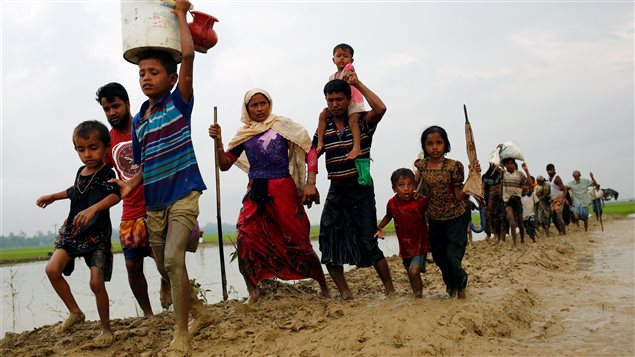
The Canadian government and humanitarian groups are very concerned by the situation facing the Rohingyas and its impact on Bangladesh, she said. As a result of the crisis in Myanmar Bangladesh has received so many Rohingya refugees “that it is now the largest refugee camp in the world,” Bibeau said.
However, the government has no specific plans to resettle any of Rohingya refugees to Canada for now, Bibeau said.
“I encourage all Canadians to donate to the organization of their choice,” Bibeau told a news conference in Ottawa. “Your donation will save lives and will allow them to be treated with dignity until they can return home.”
In an exclusive interview with Radio Canada International last week, Bibeau said she plans to travel to Bangladesh shortly to get a first-hand look at the desperate situation facing the Rohingya refugees.
Prime Minister Justin Trudeau has also appointed veteran Liberal politician Bob Rae as Canada’s special envoy to Myanmar.
- Special envoy to inquire into Rohingya crisis
- Trudeau calls on Aung San Suu Kyi to condemn ‘appalling cruelty’ against Rohingya Muslims
Textbook example of ethnic cleansing: UN
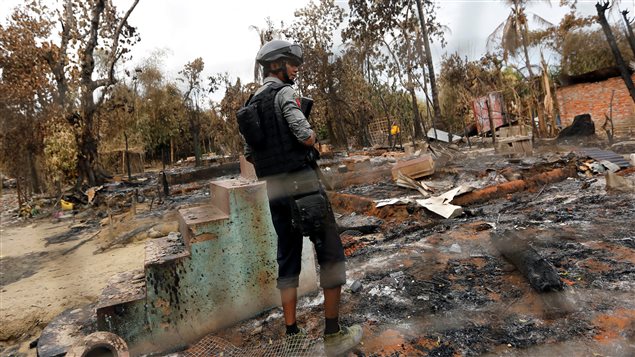
The Burmese military and Buddhist mobs are accused of a brutal crackdown on Rohingya villages in the Rakhine state following an attack by Rohingya militants on 30 police stations and an army outpost on Aug. 25.
More than 600,000 Rohingya’s have fled the violence since then, trudging for days through the muddy hills and rice paddies or taking risky boat rides by sea.
There are now 817,000 refugees in Cox’s Bazar the southernmost district of Bangladesh, near the border with Myanmar’s Rakhine state, including 200,000 who had been seeking refuge there prior to the exodus that began in late August, according to the International Organization for Migration (IOM).
All but 46,000 among them are living in makeshift shelters or improvised settlements, set up on hilly terrain, making access to them extremely challenging, the IOM said.
The UN also estimates that there are hundreds of thousands of Rohingyas who are also in need of assistance inside Myanmar.
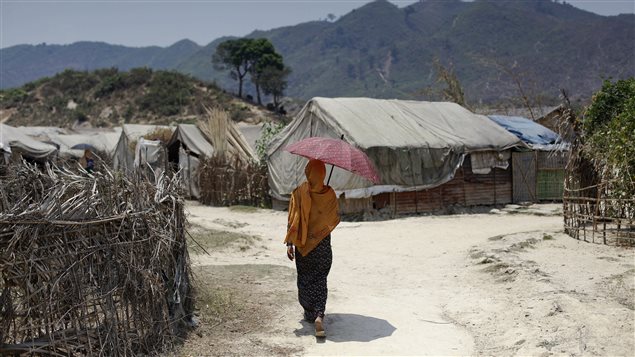
“We are very pleased that Canada is taking action today to help provide urgent relief to the 1.2 million Rohingya in need of assistance, including 720,000 children,” said David Morley, UNICEF Canada President and CEO.
“There is no time to lose. Every day, UNICEF workers on the border in Bangladesh see the faces of ever more children who have run from unspeakable atrocities in search of safety, often separated from their families along the way, and in desperate need of life-saving support.”
‘No more tears to give’
Zaid al-Rawni, CEO at Islamic Relief Canada, who recently returned from a fact-finding trip to Bangladesh and Myanmar, said the conditions on the ground are “dire and painful.”
“It was horrific,” al-Rawni said in a phone interview after the announcement in Ottawa. “I’ve seen many different disasters globally and the aftermath, but I’ve rarely seen anything as sad as this: the hurt, the anguish, the pain.”
(click to listen to the full interview with Zaid al-Rawni)
ListenFor many of the survivors he spoke with the pain was so severe that they had become numb to it, al-Rawni said.
“One lady described how she lost her husband, her father, her eldest child, and she said, ‘I’m telling you all this and I have no tears, there is no more tears to give, I just want to concentrate now on surviving and making sure that the rest of my children have what they need,” al-Rawni recounted.
Children and their families urgently need shelter, along with access to food, safe water, vaccinations and sanitation to ensure protection against deadly diseases, Morley said.
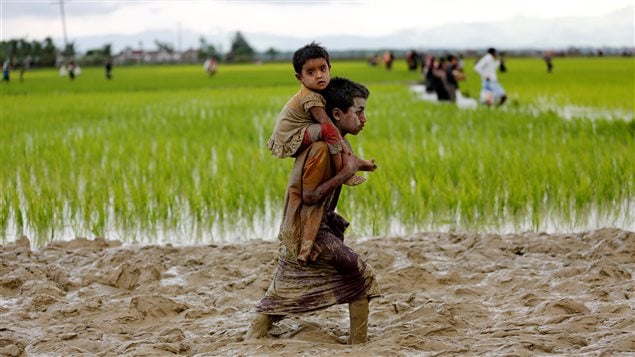
“The conditions in which Rohingya children now find themselves would be unthinkable for any child,” Morley said. “But for the child that is alone, separated from their family or orphaned – of which there are nearly 1,700 – it is horrifying. I challenge anyone to put themselves in that position and not feel compelled to act.”
Funding gap
The UN has appealed for $434 million, including some $76.1 million to address the immediate needs of newly-arrived Rohingya children, as well as those who arrived before the recent influx, and children from vulnerable host communities.
However, a ministerial-level pledging conference held in Geneva on Oct. 23 raised only $344 million.
Al-Rawni said he’s counting on the generosity of ordinary Canadians to fill some of that funding gap.
“What is expected from Canadians isn’t to solve the world’s problems, there are too many of them, but it’s to contribute,” al-Rawni said. “The world does need more Canada and that means a demonstration of generosity, a demonstration of solidarity, a demonstration of care and empathy.”
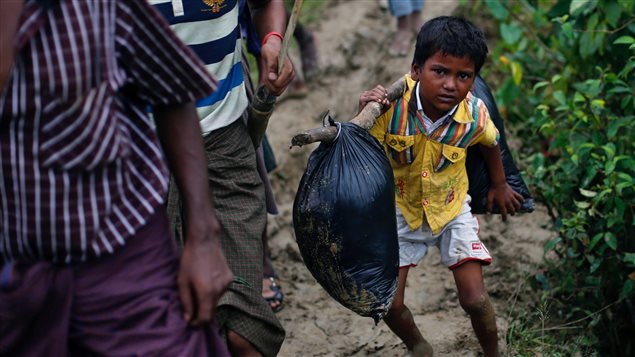






For reasons beyond our control, and for an undetermined period of time, our comment section is now closed. However, our social networks remain open to your contributions.